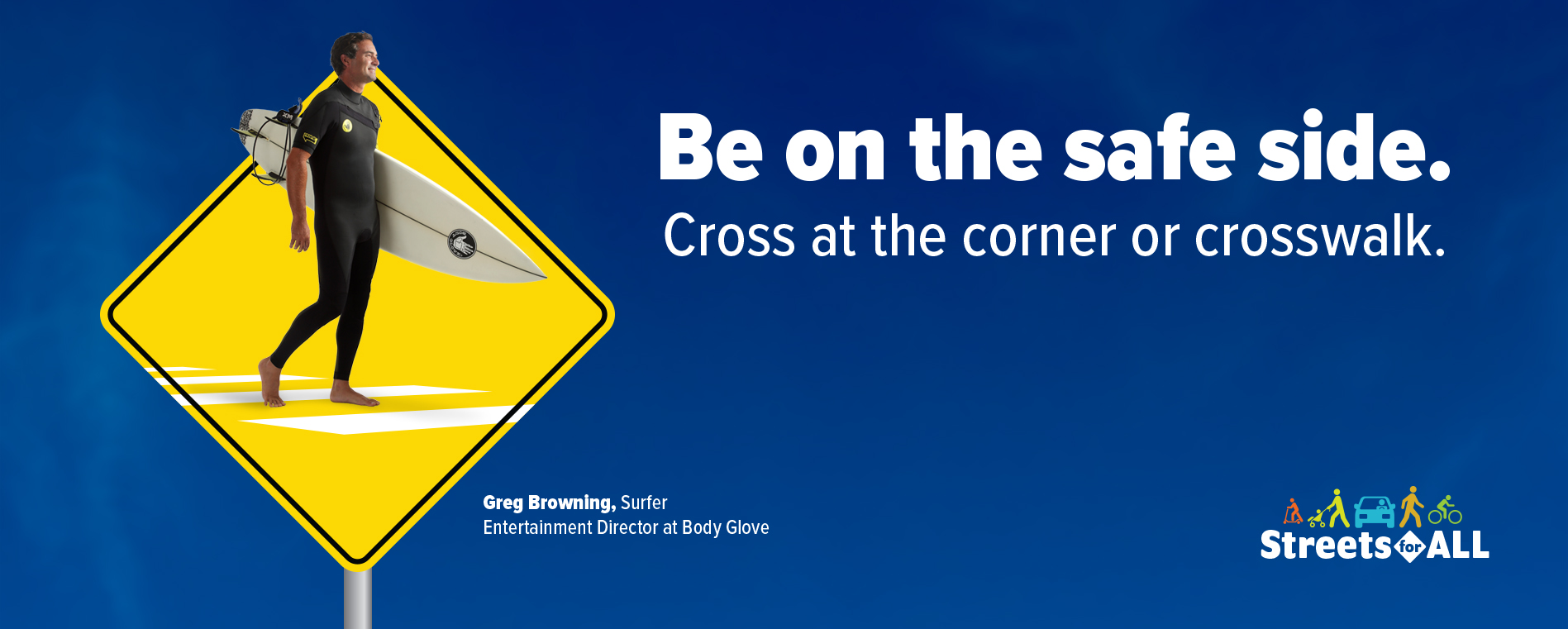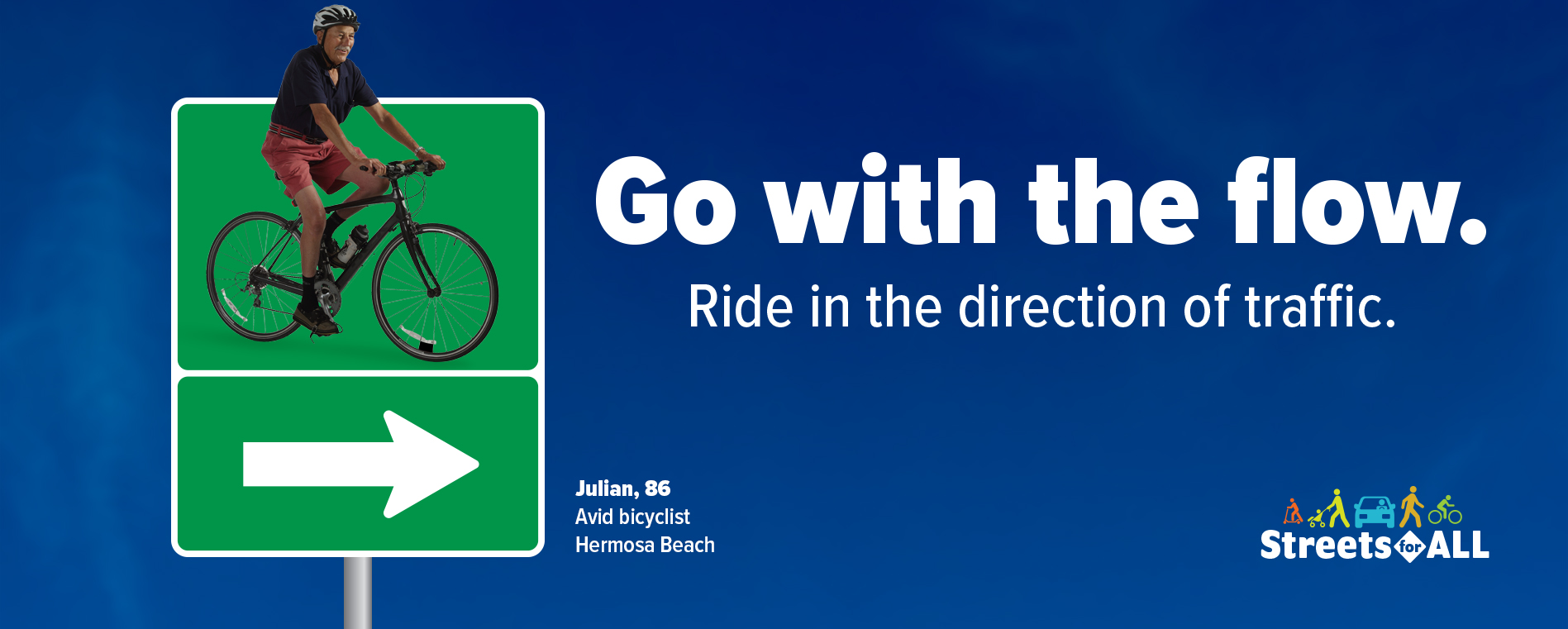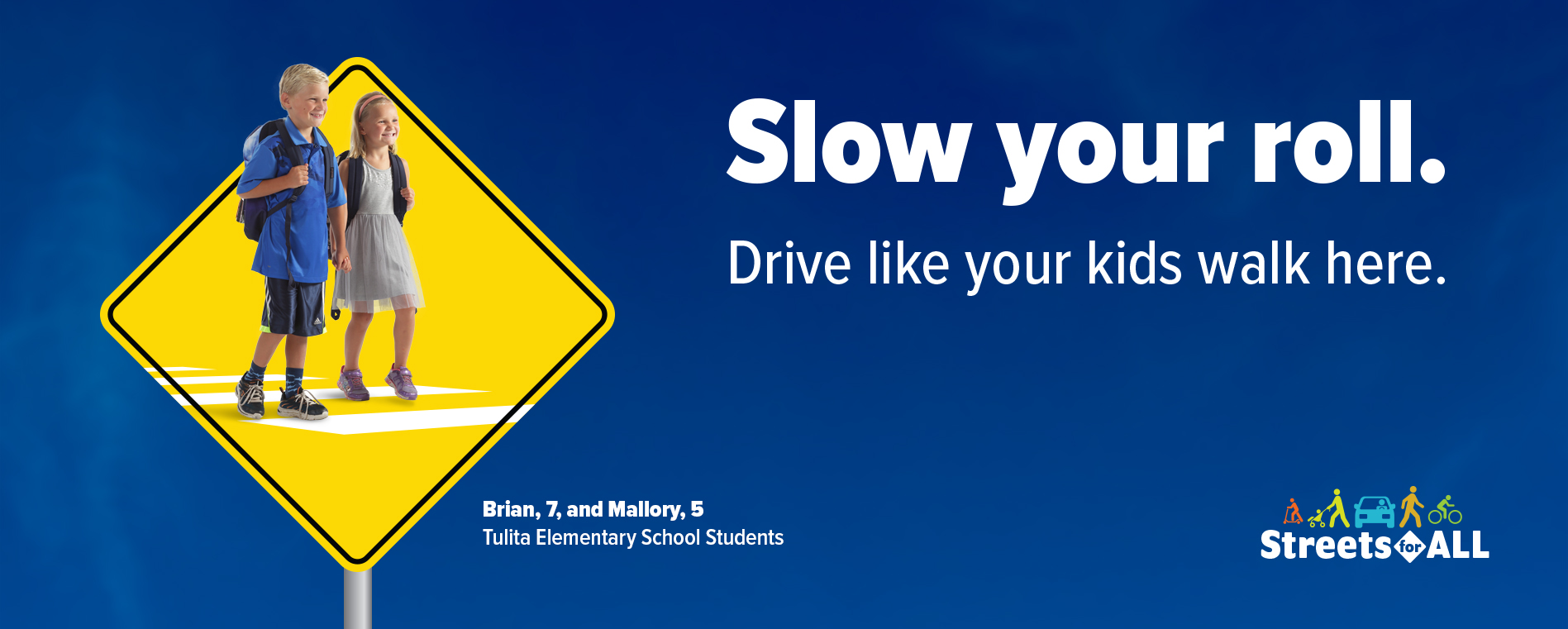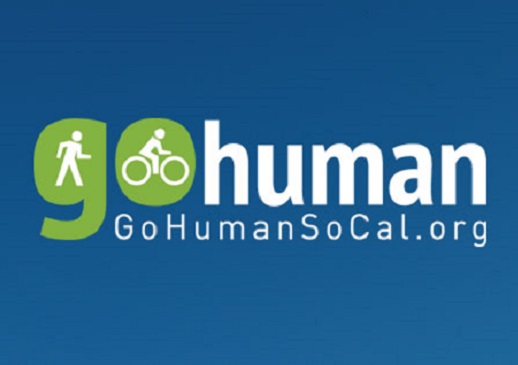About Streets for All
We all share the responsibility to make Beach Cities streets safe for everyone, including pedestrians and bicyclists. Safe places to walk and bike are important for supporting active, vibrant communities. In backing this effort, Beach Cities Health District launched a safety campaign to educate the community on how they can create “Streets for All”: bicyclists, pedestrians, drivers, strollers, people with disabilities and skateboarders.
Streets for All focuses on spreading public education messages about street safety to residents of all ages and spotlighting the need for increased safety measures along highly-trafficked corridors like Prospect Avenue — which cuts through six school zones and impacts more than 5,500 Redondo Beach students on a daily basis.
For more information on ways Beach Cities Health District is creating a livable beach community, view the Streets for All resource guide, the Streets for All educational series summary report or visit bchd.org/healthpolicy.
Key Campaign Themes
- Increase street safety education efforts.
- Advocate for infrastructure to enhance safety and livability.
- Share resources and best practices.
- Partner and collaborate with local organizations.
- Promote “Streets for All” and sharing the road for all users
Why it Matters
There are various transportation methods used within the Beach Cities communities which are utilized by a wide array of age groups and so we want to ensure our streets are safe for everyone.
A livable community is one that provides safe and convenient transportation choices to all, whether it's by walking, bicycling, transit, or driving. Understanding how to responsibly share the road is crucial for injury prevention, decision-making, and safety-planning.
E-Bike Safety and Education
E-bike (electric bikes) have become a common form of transportation in the Beach Cities, especially with young people. Understandably, this growing popularity has come with concerns over safety, education, and general guidance for riding.
To fill in the gaps in e-bike education, BCHD has partnered with the local cities, schools and community organizations, surveyed our local middle and high schools, and developed a webpage with safety education and resources. Below you will find bicycle, pedestrian, and driver safety tips; but make sure to visit our e-bike page for detailed information and tips here.
Bicycle Safety Tips
When riding your bike and e-bikes, be sure to follow these bicycle safety tips.
- Same Road, Same Rules - Motorists and bicyclists are granted the same rights and responsibilities on public streets. Both must obey the laws and the rules of the road.
- Stop Means Stop - Bicyclists must come to a complete stop at any stop sign or stoplight, and yield to those who arrive first.
- Always Wear a Helmet - Helmets reduce your risk of injury. State law requires children under 18 to wear a helmet when riding any kind of bicycle, scooter or skateboard, including those that are electric powered.
- Ride in the Direction of Traffic - Always ride in the direction of traffic and leave space between you and cars for braking. If there isn’t a dedicated bike lane, ride in the center of the driving lane rather than the right-hand side of the lane.
- Extra Caution with E-Bikes and E-Scooters - Get used to the stronger acceleration and braking before going on major roads. Give yourself and others around you more reaction time and space.
- Make Yourself Seen - Always use arm signals to indicate your next move. Use a bell if cars, pedestrians, or other bicyclists don’t notice you. A bike light, bright colors and reflective materials help increase visibility, especially at night.
Pedestrian Safety
- Cross at the corner and use crosswalks when available.
- Even if you have the right of way, look both ways. Make eye contact to be sure drivers see you. Don’t assume drivers will stop.
- If you have young children, teach and reinforce safe walking.
- When wearing earphones, keep volume low enough to still be able to hear traffic or indications of danger, or wear just one earpiece.
- Stand clear of hedges, buses, parked cars or other objects that could make it difficult for drivers to see you.
- Wait for the walk signal before crossing. Don’t enter the crosswalk if the hand is flashing or solid red.
- Wear something bright or reflective when it is dark. Cross the street in a well-lit area if possible.
- On trails/paths used by people biking, look behind you before making sudden turns.
- When hiking, always let someone know your route, destination and expected return time.
- At mid-block crossings, even if one car stops at a crosswalk, do not assume other motorists can see you and will stop for you.
Driver Safety
The following driver safety tips are from the California Vehicle Code.
- Slow down. Drive the speed limit or less. Be alert for people walking, bicycling, skateboarding or in wheelchairs (CVC 21954(b)).
- Every intersection is a crosswalk, even if unmarked. Always stop for people crossing the street (CVC 21950).
- Give people biking at least three3 feet when passing. Do not pass unless safe to do so (CVC 21760).
- When parallel parking, look in the side view mirror and over your shoulder for people biking or other vehicles before opening the door. Only open door when safe to do so (CVC 22517).
- Look twice for people walking or biking before you make a turn. Always come to a complete stop before turning right on red (CVC 21453).
- If another car is stopped at a crosswalk, you should stop too. There may be someone crossing the street that you can’t see (CVC 21950).
- Be alert. Put your cell phone away. Keep your eyes on the road and watch for other roadway users, including people walking and biking (CVC 23123.5).
- Only enter a bike lane to park where permitted, to leave the roadway or to prepare to enter an intersection (CVC 21209).
Community Involvement
Help us spread the message.
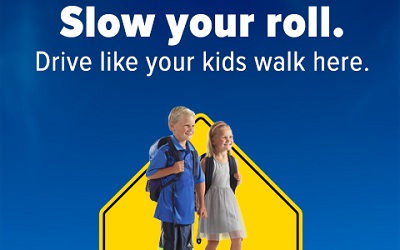
Slow your roll. Speeding gives you less time to react to something or someone in your path. #StreetsForAll
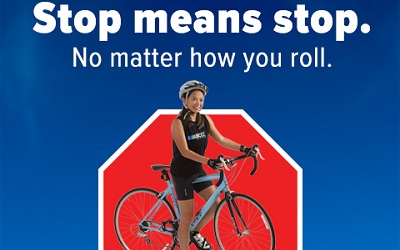
Bicyclists must come to a complete stop at any stop sign or stoplight, and yield to those who arrive first. #StreetsForAll
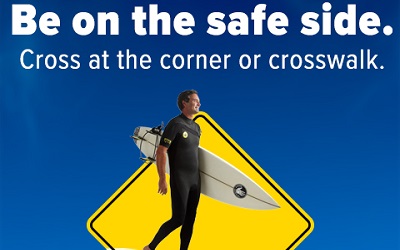
Cross at the corner or crosswalk, and always look both ways before crossing. Make eye contact with drivers to make sure they see you. #StreetsForAll
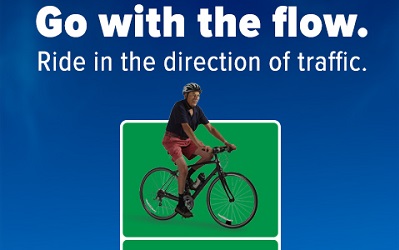
Always ride in the direction of traffic, and use signals when turning. These simple acts help bicyclists be more visible and predictable to those around them. #StreetsForAll
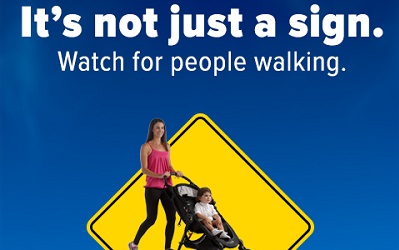
Keep your eyes on the road and avoid distractions - like checking your phone - while driving. #StreetsForAll.
Download Streets for All Campaign Materials:
− Streets for All Safety Tips
− Streets for All Posters
• Wear your helmet.
• Watch your speed.
• Eyes on the road.
• Slow your roll.
• Slow your roll.
• Stop means stop.
• Be on the safe side.
• Go with the flow.
• It's not just a sign.
• It's not just a sign.
• I saw the sign.
− Streets for All Social Media Images
• Wear your helmet.
• Watch your speed.
• Eyes on the road.
• Slow your roll.
• Stop means stop.
• Be on the safe side.
• It's not just a sign.
• It's not just a sign.
• I saw the sign.
• Go with the flow.
• Streets for All Partners
Streets for All Partners
- City of Hermosa Beach
- City of Manhattan Beach
- City of Redondo Beach
- Redondo Beach Unified School District
- Hermosa Beach City School District
- Beach Cities Health District
- Beach Cities Cycling Club
- South Bay Bicycle Coalition Plus
- Southern California Association of Governments
Additional Street Safety Resources




